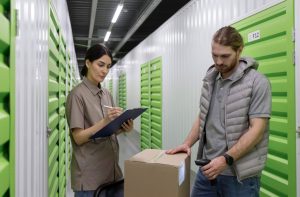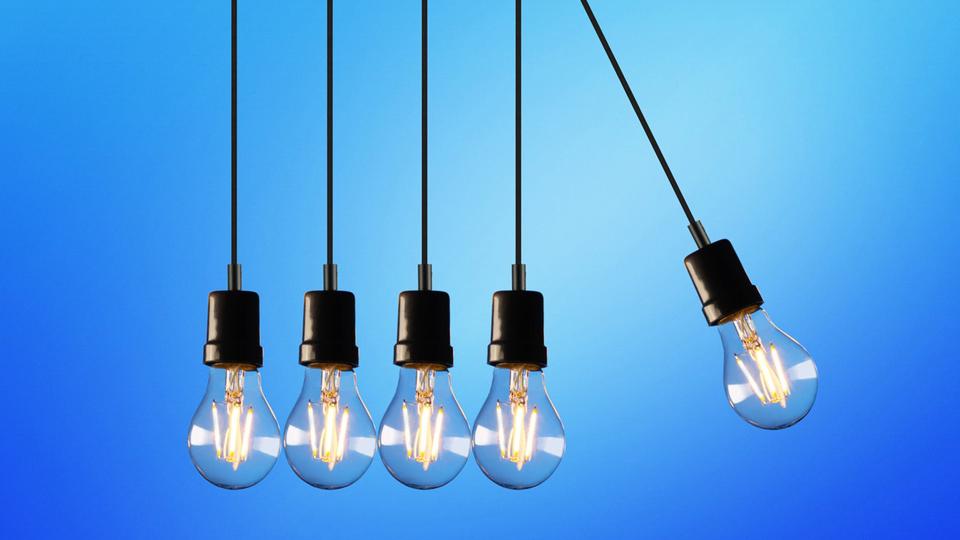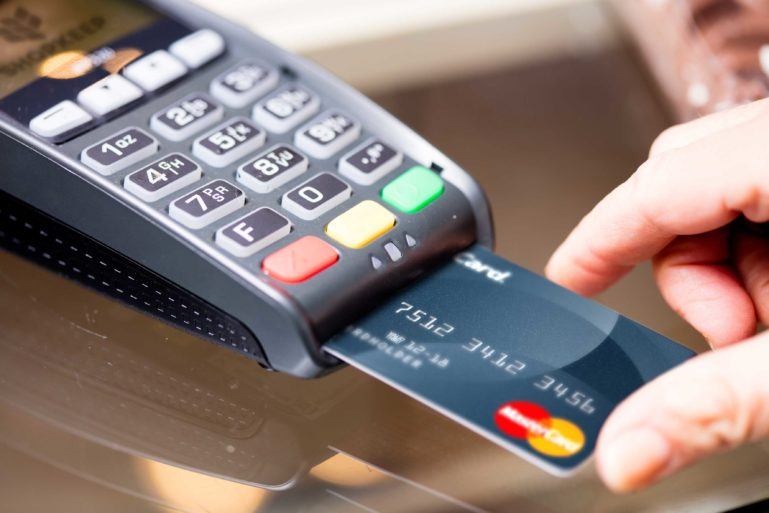How Much Does Water Cost for a Small Business in the UK? An Examination
Swati August 14, 2023 0 COMMENTS
In the UK, business water prices play a pivotal role in shaping the financial landscape for small enterprises. The cost of water has a significant impact on businesses of all sizes, making it crucial for small business owners to understand the factors that influence these prices. In this article, we will delve into the various components that contribute to business water prices for small companies in the UK. From water rates to water-saving measures, we will examine the intricacies to equip business owners with the knowledge to effectively manage their water expenses. So, let’s dive in and explore the depths of business water prices in the UK!
Table of Contents
Understanding Water Rates
One of the primary components of water costs for small businesses in the UK is the water rates. Water rates are the charges applied to a business based on the amount of water they consume. These rates vary depending on the water supplier and the region the business operates in. Different suppliers have their own pricing structures, making it essential for business owners to understand the specific rates applicable to their area.
Differences in Water Rates Across the UK
Water rates can differ significantly across the UK due to regional variations in water availability, treatment costs, and infrastructure maintenance. For instance, businesses in areas with ample water resources might benefit from lower rates, while those in regions facing water scarcity might incur higher charges.
To get accurate information about water rates, small business owners should contact their water supplier or check the supplier’s website for tariff details. Some suppliers also offer online calculators that help estimate water costs based on consumption.
Water Meters: Are They Worth It?
Water meters are devices that measure the amount of water consumed by a business. In some cases, businesses may have the option to choose between a water meter and an unmetered tariff. It is crucial to evaluate whether installing a water meter would be more cost-effective for the business.
For businesses with irregular water consumption patterns or low water usage, an unmetered tariff may be more suitable. On the other hand, businesses with stable and higher water usage might find a water meter to be more cost-efficient. The meter allows businesses to pay for the exact amount of water used, providing potential savings for those who use water efficiently.
Understanding Trade Effluent Charges
Some small businesses produce trade effluent, which is any liquid waste that is discharged into the public sewer from business operations. Trade effluent charges can significantly impact water costs for businesses involved in activities such as manufacturing, food processing, or car washing.
The trade effluent charges are based on the strength and volume of the effluent discharged. Businesses must comply with specific regulations regarding trade effluent to avoid penalties and to keep the costs under control. Working closely with the water supplier to understand the trade effluent charges and implementing water treatment measures can help mitigate these costs.
Water-Saving Measures for Small Businesses
Implementing water-saving measures is not only environmentally responsible but also financially beneficial for small businesses. By reducing water consumption, businesses can lower their water bills and contribute to water conservation efforts. Here are some practical water-saving measures that small businesses can adopt:
- Fixing Leaks: Leaky faucets and pipes can waste a significant amount of water over time. Regularly inspecting and promptly repairing any leaks can prevent water wastage and keep water bills in check.
- Water-Efficient Fixtures: Installing water-efficient fixtures such as low-flow toilets, aerated faucets, and sensor-based taps can significantly reduce water usage without compromising functionality.
- Rainwater Harvesting: Businesses that require water for non-potable purposes, such as irrigation or toilet flushing, can consider rainwater harvesting systems. Collecting rainwater can offset the need for treated water, leading to cost savings.
- Water Recycling: Depending on the nature of the business, implementing water recycling systems can be a viable option. Water used in certain processes can be treated and reused, reducing overall consumption.
- Employee Awareness and Training: Raising awareness among employees about the importance of water conservation and providing training on water-saving practices can encourage a culture of responsible water usage within the organization.
Government Initiatives and Support
The UK government is actively promoting water conservation and sustainable practices, offering a range of current and relevant initiatives and support for businesses striving to reduce water consumption. These programs aim to incentivize and assist small businesses in adopting water-saving technologies and practices to protect the environment and manage water costs effectively.
- Water Efficiency Grants
The government, along with various water suppliers, provides water efficiency grants to eligible small businesses. These grants offer financial support to invest in water-efficient technologies, such as water-efficient fixtures, rainwater harvesting systems, and water recycling equipment. By subsidizing the initial costs, these grants encourage businesses to embrace sustainable water practices, ultimately leading to long-term water and cost savings. - Water-Saving Audits and Assessments:
Several water suppliers offer water-saving audits and assessments to small businesses. These audits involve an evaluation of the business’s water consumption patterns, identifying areas where water could be conserved and costs reduced. The assessments also provide tailored recommendations and action plans, helping businesses implement effective water-saving measures. - Leakage Reduction Support:
Leakage can be a significant source of water wastage for businesses. To address this issue, some water suppliers collaborate with small businesses to identify and rectify leaks. They may offer guidance on leak detection techniques and even provide financial assistance to cover the cost of repairs. By tackling leaks promptly, businesses can prevent unnecessary water expenses and contribute to water conservation efforts. - Water-Efficient Equipment Incentives:
The UK government collaborates with certain industries to promote the use of water-efficient equipment and technologies. For instance, in manufacturing and food processing sectors, businesses may receive incentives for adopting water-saving machinery and processes. These incentives can come in the form of tax breaks, grants, or reduced tariffs, encouraging businesses to invest in sustainable water practices. - Education and Training Programs:
The government, in partnership with environmental organizations and water suppliers, organizes workshops, webinars, and training sessions for small businesses. These programs focus on raising awareness about the importance of water conservation and provide practical guidance on implementing water-saving measures. By empowering businesses with knowledge, the government aims to create a culture of responsible water usage within the business community. - Water Tariff Discounts for Water-Efficient Businesses:
Some water suppliers offer special tariff schemes that reward businesses for their water-saving efforts. Businesses that can demonstrate significant water conservation may qualify for discounted water rates. These tariff structures incentivize businesses to continually improve their water usage practices and maintain sustainable operations.
Embracing the Wave of Change – Small Businesses Pave the Way to a Sustainable Water Future
The UK government’s commitment to water conservation is reflected in the range of initiatives and support it provides to small businesses. From water efficiency grants to leakage reduction support and water-saving audits, these programs aim to encourage businesses to embrace sustainable water practices. By taking advantage of these current and relevant government initiatives, small businesses can not only reduce their water costs but also contribute to a more environmentally responsible and water-efficient future. It is essential for business owners to stay informed about the available programs and seize the opportunities to build a greener and more financially viable enterprise.
RELATED ARTICLES
Latest Articles
 Laura Ingraham Husband James Reyes: Why …In BiographyApril 17, 2025Laura Ingraham is a well-known conservative […]
Laura Ingraham Husband James Reyes: Why …In BiographyApril 17, 2025Laura Ingraham is a well-known conservative […] Zach Top Wife Mystery Solved! Meet the W…In BiographyApril 16, 2025Zach Top’s music has that classic country feel that […]
Zach Top Wife Mystery Solved! Meet the W…In BiographyApril 16, 2025Zach Top’s music has that classic country feel that […] What Is a Parcel Locker? The Game-Change…In TechnologyApril 16, 2025Missing packages? Porch pirates? Missed delivery slips […]
What Is a Parcel Locker? The Game-Change…In TechnologyApril 16, 2025Missing packages? Porch pirates? Missed delivery slips […] Dawn Staley Relationship Rumors: What’s …In BiographyApril 15, 2025When it comes to iconic figures in sports, Dawn Staley […]
Dawn Staley Relationship Rumors: What’s …In BiographyApril 15, 2025When it comes to iconic figures in sports, Dawn Staley […] How Window Tinting Affects Driver Visibi…In TechnologyApril 11, 2025Introduction: Beyond Style — The Functional Side of […]
How Window Tinting Affects Driver Visibi…In TechnologyApril 11, 2025Introduction: Beyond Style — The Functional Side of […] Vaishnav Tej Wife, Age, Family, Girlfrie…In BiographyApril 11, 2025Vaishnav Tej wife: There is always more to know about […]
Vaishnav Tej Wife, Age, Family, Girlfrie…In BiographyApril 11, 2025Vaishnav Tej wife: There is always more to know about […] Nick Sandmann Net Worth, Biography, Heig…In BiographyApril 11, 2025Young Nick Sandmann, catapulted into the media […]
Nick Sandmann Net Worth, Biography, Heig…In BiographyApril 11, 2025Young Nick Sandmann, catapulted into the media […] Cold War Timeline: The Real Story Behind…In HistoryApril 4, 2025If you’ve ever wondered how we ended up with the […]
Cold War Timeline: The Real Story Behind…In HistoryApril 4, 2025If you’ve ever wondered how we ended up with the […]
stopie.com is a participant in the Amazon Services LLC Associates Program, an affiliate advertising program designed to provide a means for sites to earn advertising fees by advertising and linking to Amazon.com.
Clicking on an Amazon link from stopie.com does not increase the cost of any item you purchase.
We will only ever link to Amazon products that we think our visitors may be interested in and appreciate learning more about.



